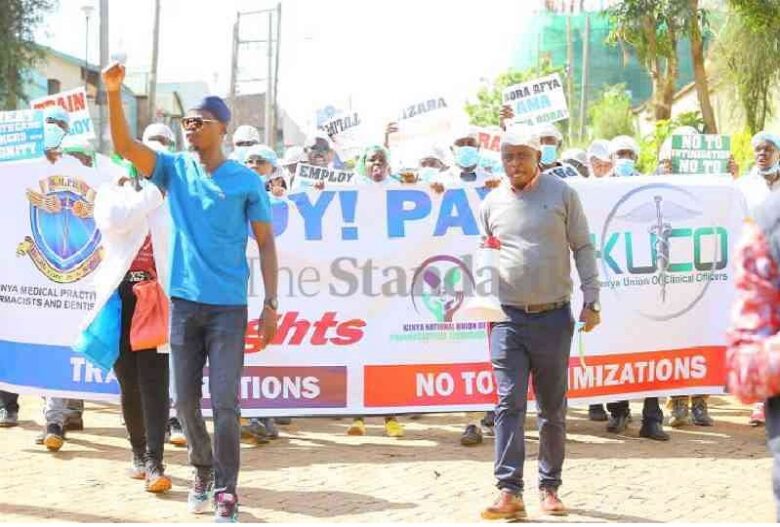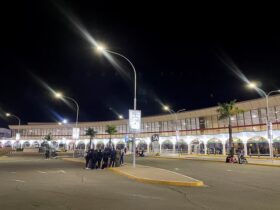On Thursday, doctors across Kenya’s public hospitals launched a nationwide strike, alleging that the government had not upheld its commitments outlined in a collective bargaining agreement signed in 2017.
This move follows a previous 100-day strike, during which individuals faced dire consequences, including loss of life due to insufficient medical attention.
The Kenya Medical Practitioners, Pharmacists and Dentists Union announced their strike, citing the need for comprehensive medical insurance coverage for doctors and the government’s failure to assign 1,200 medical interns to their positions.
Despite a labor court order urging talks with the government, Dr. Davji Bhimji, the secretary-general of KMPDU, reported that 4,000 doctors participated in the strike
Furthermore, Dr. Dennis Miskellah, the union’s deputy secretary-general, declared their intent to defy the court order, pointing out the government’s disregard for three previous court orders to increase doctors’ basic pay and reinstate suspended colleagues.
Miskellah stressed that medical interns, constituting 27 percent of Kenya’s public hospital workforce, were absent, resulting in more sick individuals being turned away from hospitals.
Nevertheless, some doctors remained on duty to ensure patients in intensive care units received essential care and did not face life-threatening situations.
During an interview with leading broadcaster Citizen TV, Miskellah highlighted the dire situation faced by doctors, noting that some were resorting to suicide due to work-related frustration.
Additionally, he mentioned that others had to resort to fundraising for medical treatment due to the absence of comprehensive health coverage.
The strike’s repercussions reverberated across the nation, with many patients left unattended or turned away from hospitals throughout the East African nation.
Pauline Wanjiru shared her distressing experience of being turned away from a hospital in Kakamega County, Western Kenya, when seeking treatment for her 12-year-old son’s broken leg, which had developed a concerning odor.
In 2017, Kenya’s public hospital doctors embarked on a 100-day strike, the longest in the country’s history.
Their demands included better wages and the restoration of the nation’s deteriorating public health facilities.
They also advocated for the continuous training and recruitment of doctors to alleviate the critical shortage of healthcare professionals.
During this period, public doctors, who undergo six years of university training, were earning basic salaries ranging from $400 to $850 per month, a figure comparable to some policemen’s salaries despite their significantly shorter training period of just six months.
ALSO READ: Airtel Africa begins construction of landmark Data centre in Nigeria – why it matters









Got a Question?
Find us on Socials or Contact us and we’ll get back to you as soon as possible.